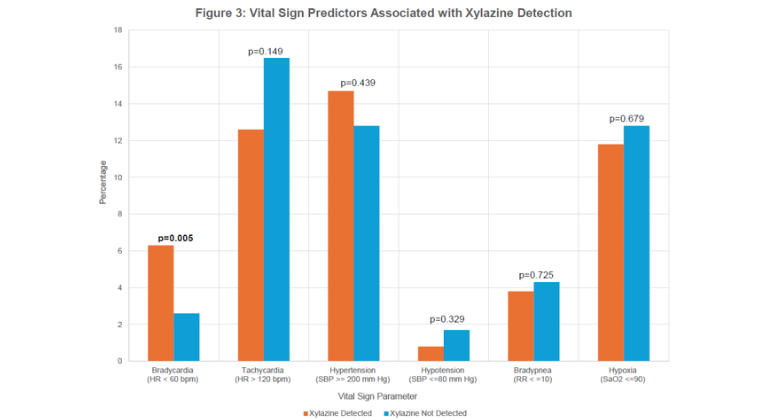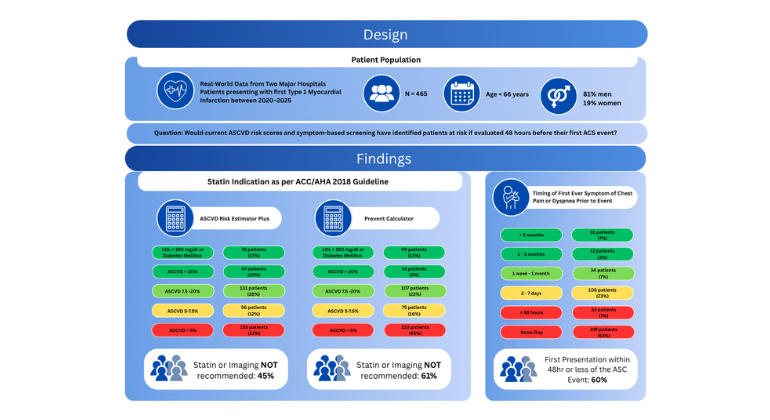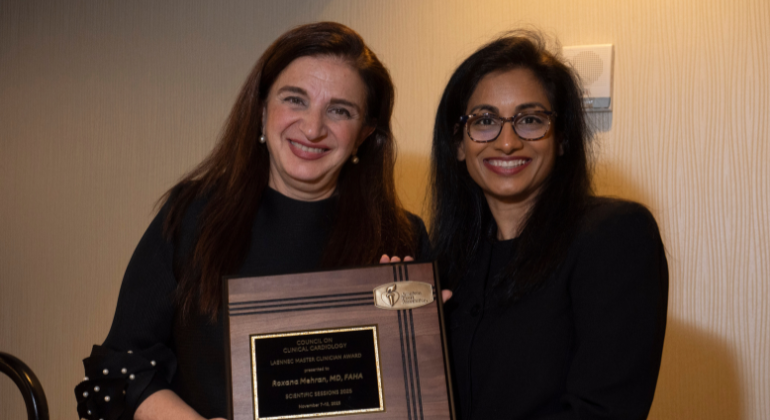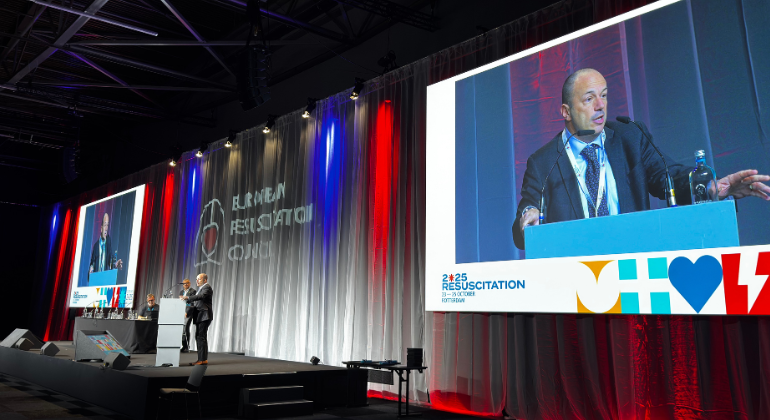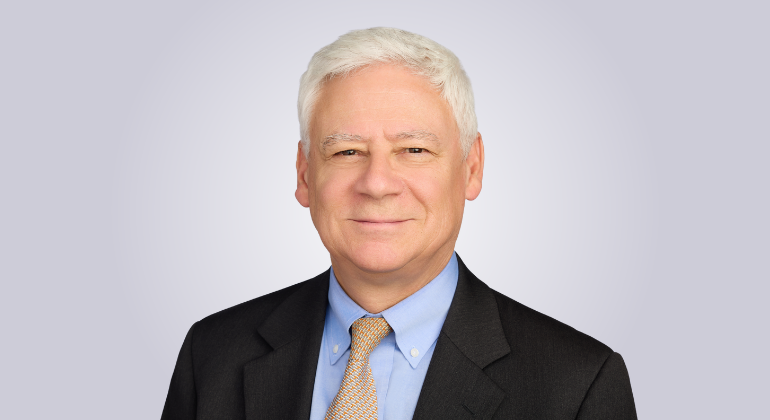Nerve Stimulation in Neck May Reduce Heart Failure Symptoms
Multidisciplinary team of doctors at The Mount Sinai Hospital testing innovative heart failure therapy in global clinical trial.
A multidisciplinary team of experts in heart failure, cardiac arrhythmia, and neurosurgery atThe Mount Sinai Hospital are now testing nerve stimulation in the neck as a novel therapy for heart failure patients to potentially help relieve their debilitating symptoms of fatigue, shortness of breath, and heart arrhythmias, while reducing their hospitalizations.
The global, multicenter randomized clinical trial called INOVATE-HF (INcrease Of VAgal TonE in chronic Heart Failure) is investigating the safety and efficacy of an implantable vagus nerve electrical stimulation device called CardioFit® to improve the heart's function and the quality of life of heart failure patients.
Mount Sinai's multidisciplinary team of clinical trial investigators includes principal investigator electrophysiologist Vivek Reddy, MD, Director of Arrhythmia Services; neurosurgeon Brian H. Kopell, MD, Director of the Center for Neuromodulation; and heart failure specialist Ajith P. Nair, MD, Director of the Pulmonary Hypertension Program in the Advanced Heart Failure and Transplantation Program.
The device is a three-part system consisting of a "stimulator" about the size of a pacemaker, and two connecting leads. The stimulator is implanted under the skin of the chest with a "sensor lead" implanted inside the right ventricle of the heart, and a "stimulation lead" implanted around the vagus nerve in the right side of the neck.
The large vagus nerve runs from the brain stem down to the abdomen on both the left and right side of the body. It sends signals throughout the body and directly to and from the brain to regulate multiple bodily functions including heart rate.
Once activated by doctors, the stimulator in the chest sends mild electrical pulses up to the vagus nerve to help reduce heart rate, stress, and workload on the cardiac muscle to improve overall heart function. The sensor lead in the heart's right ventricle monitors for any abnormal changes in the heart's electrical activity and provides feedback to the stimulator enabling it to react.
"This novel use of vagus nerve stimulation may be the therapy we have long been waiting for to bring relief to heart failure patients with chronic symptoms and protect them from dangerous and potentially fatal arrhythmias," says Dr. Vivek Reddy, Director of Arrhythmia Services at The Mount Sinai Hospital. "The results of this study testing the simple electrical stimulation of the body's powerful vagus nerve may unlock a future promising therapy for heart failure. I am excited that by working with our heart failure and neurosurgery colleagues, we can offer this potentially transformative therapy to our patients."
"Our clinical trial will compare the benefits of vagus nerve stimulation to the standard treatment of combination medication which is currently our first line of defense against heart failure," says Dr. Ajith P. Nair, Director of the Pulmonary Hypertension Program in the Advanced Heart Failure and Transplantation Program at The Mount Sinai Hospital. "Our study will also test vagus nerve stimulation therapy's ability to reduce hospitalization, a major issue for heart failure patients, as well as, its capability to reduce mortality in this high-risk population."
"At Mount Sinai we have successfully used vagus nerve stimulation for refractory epilepsy in patients with uncontrollable seizures, and to treat patients with major depression, who don't have good responses to medication therapy," says Dr. Brian H. Kopell, Director of the Center for Neuromodulation at The Mount Sinai Hospital. "This trial represents the first time VNS is being tested in heart failure patients in the United States. We are excited to see what clinical benefits are possible and hope this innovative therapy may bring relief to patients at Mount Sinai and around the world suffering from heart failure."
Recent international studies investigating the CardioFit® device have shown that patients with the nerve stimulation device can experience sustained improvement in heart function and structure, heart rate, improvement in quality of life, and increased exercise tolerance. Research shows patients may start to experience improvement in their heart failure symptoms after several weeks and months of gradually increased nerve stimulation therapy.
Heart failure affects more than six million people in the United States and 23 million worldwide. It occurs when a person's heart is too weak to properly pump and circulate blood throughout their body. A single or several conditions over time can increase a person's risk of developing heart failure by weakening their heart muscle or damaging their heart's vessels including arrhythmias, which are abnormal electrical heart rhythm disturbances affecting the heart's proper beating.
Patients eligible for enrollment in the INOVATE-HF clinical trial are those diagnosed with New York Heart Association stage III "moderate" heart failure, who even though they are being treated with several combination medications, they continue to have debilitating symptoms including fatigue, shortness of breath, and abnormal heart arrhythmias.
The sponsor of this clinical trial and maker of the CardioFit® system is BioControl in Yehud, Israel. The Mount Sinai Hospital researchers have no conflicts to report.
Clinical trial coordinators involved in patient recruitment and patient management are Betsy A. Ellsworth, MSN, ANP, Clinical Trials Manager and Nicole Rothman, Clinical Research Coordinator, both members of the Cardiac Electrophysiology Service at Mount Sinai.
About the Mount Sinai Health System
Mount Sinai Health System is one of the largest academic medical systems in the New York metro area, with 48,000 employees working across seven hospitals, more than 400 outpatient practices, more than 600 research and clinical labs, a school of nursing, and a leading school of medicine and graduate education. Mount Sinai advances health for all people, everywhere, by taking on the most complex health care challenges of our time—discovering and applying new scientific learning and knowledge; developing safer, more effective treatments; educating the next generation of medical leaders and innovators; and supporting local communities by delivering high-quality care to all who need it.
Through the integration of its hospitals, labs, and schools, Mount Sinai offers comprehensive health care solutions from birth through geriatrics, leveraging innovative approaches such as artificial intelligence and informatics while keeping patients’ medical and emotional needs at the center of all treatment. The Health System includes approximately 9,000 primary and specialty care physicians and 10 free-standing joint-venture centers throughout the five boroughs of New York City, Westchester, Long Island, and Florida. Hospitals within the System are consistently ranked by Newsweek’s® “The World’s Best Smart Hospitals, Best in State Hospitals, World Best Hospitals and Best Specialty Hospitals” and by U.S. News & World Report's® “Best Hospitals” and “Best Children’s Hospitals.” The Mount Sinai Hospital is on the U.S. News & World Report® “Best Hospitals” Honor Roll for 2025-2026.
For more information, visit https://www.mountsinai.org or find Mount Sinai on Facebook, Instagram, LinkedIn, X, and YouTube.
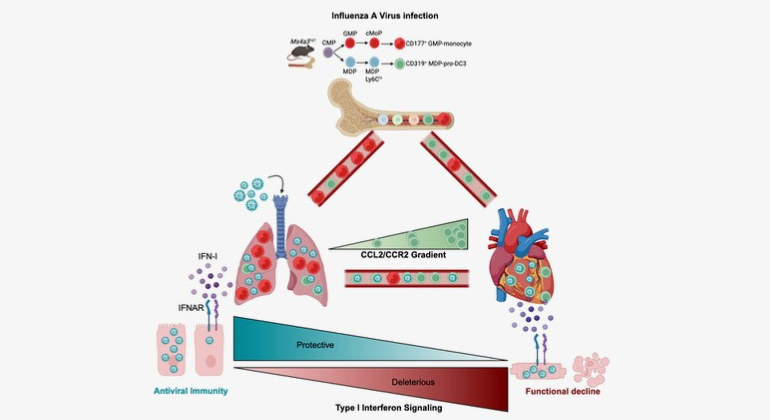
Mount Sinai Scientists Uncover Link Between Influenza and Heart Disease
Feb 09, 2026 View All Press Releases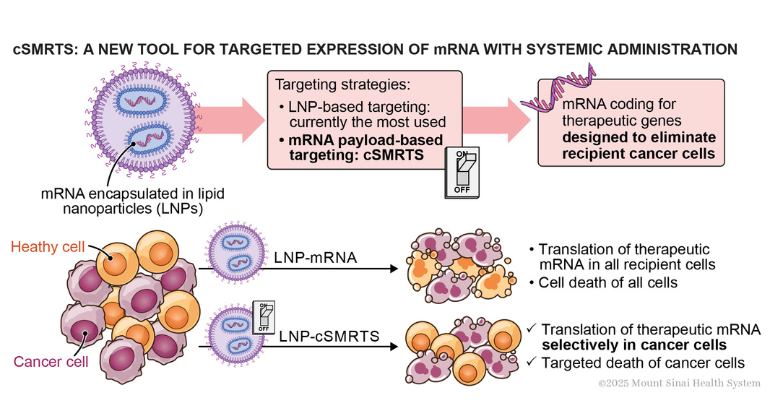
Scientists Develop a Smarter mRNA Therapy That Knows Which Cells to Target
Dec 15, 2025 View All Press Releases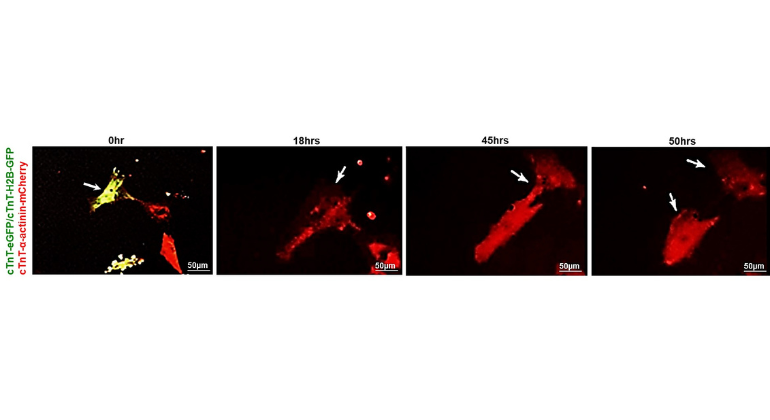
A Specific Human Gene Can Help the Heart Repair Itself From Heart Attack or Heart Failure
Nov 03, 2025 View All Press Releases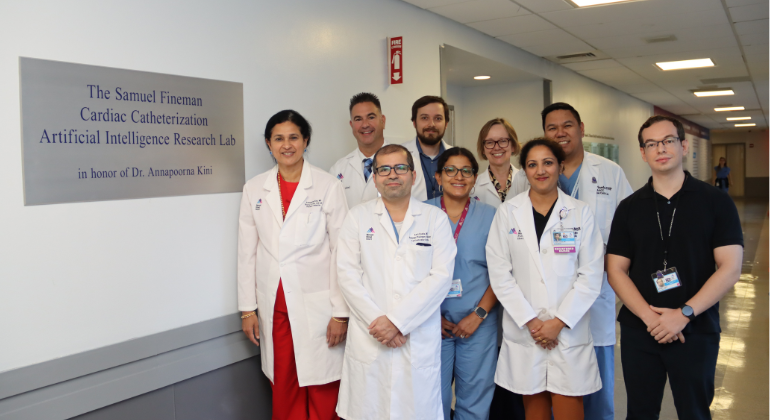
Mount Sinai Launches Cardiac Catheterization Artificial Intelligence Research Lab
Sep 15, 2025 View All Press Releases